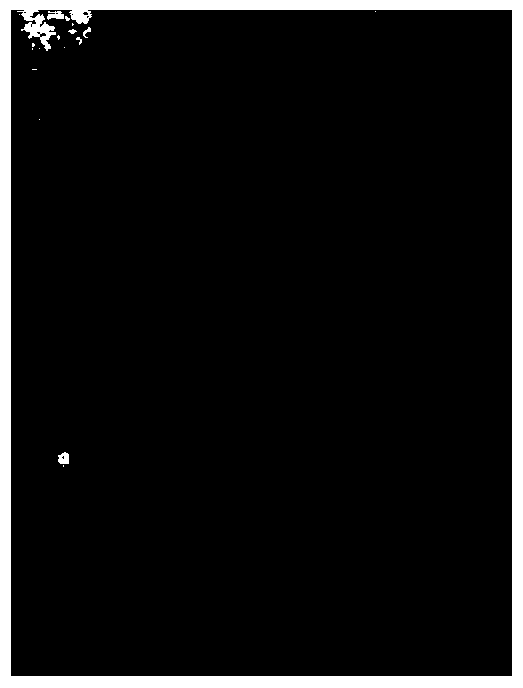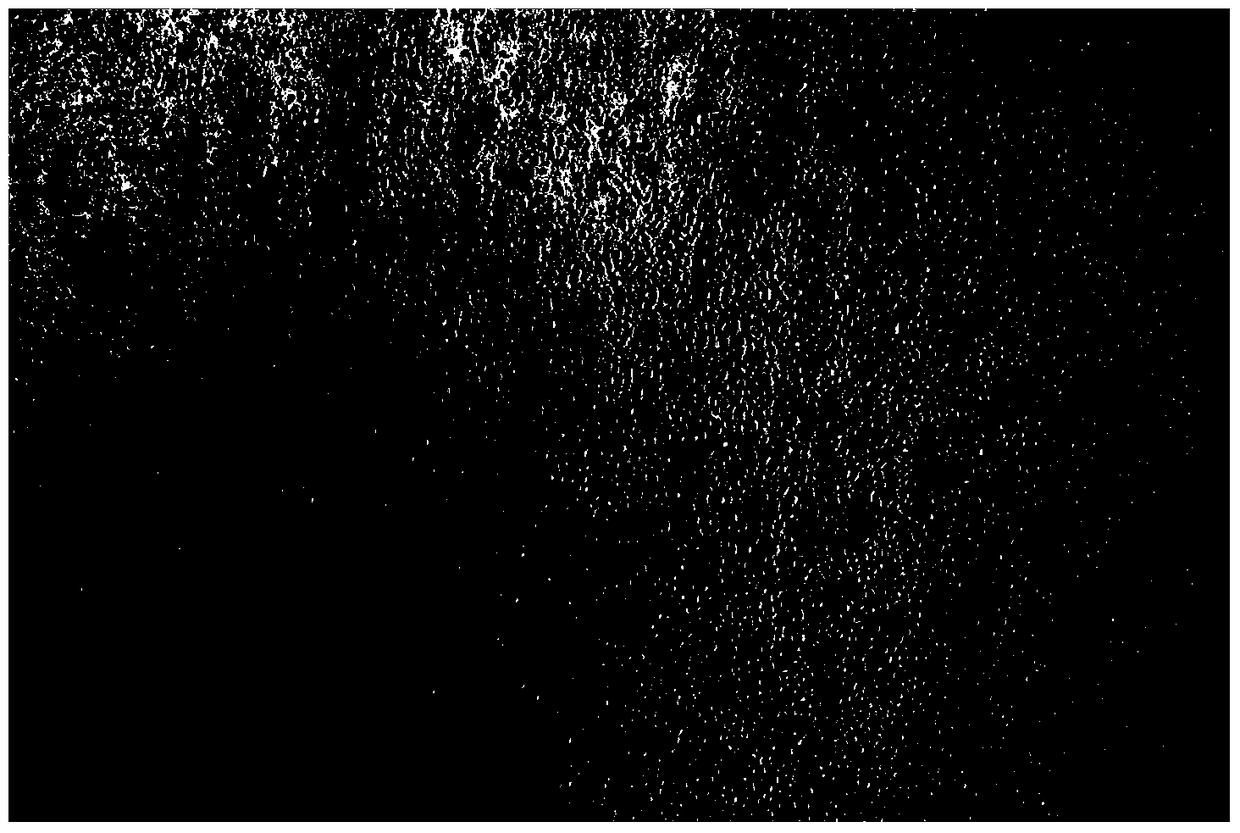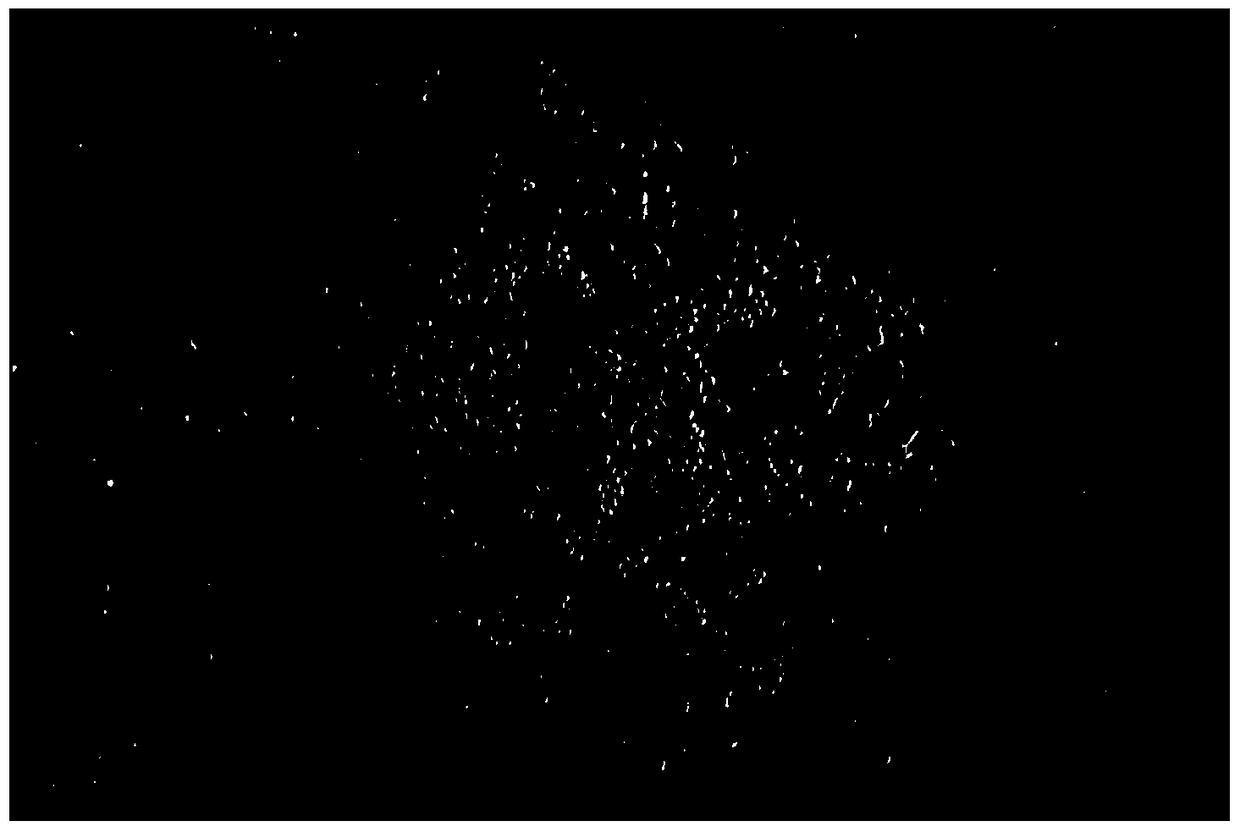A method for inducing neural stem cells using a non-integrating plasmid vector and its use
A technology of neural stem cells and plasmid vectors, applied in the field of neural stem cell induction using non-integrated plasmid vectors, can solve the problems of low transdifferentiation efficiency, long somatic cell transdifferentiation cycle, lack of effective treatment of cranial nerve injury and spinal cord injury, etc., and achieve transformation High differentiation efficiency, short induction differentiation cycle, and convenient collection
- Summary
- Abstract
- Description
- Claims
- Application Information
AI Technical Summary
Problems solved by technology
Method used
Image
Examples
Embodiment 1
[0037] Step 1: Separation of mononuclear cells in blood.
[0038] 1. At room temperature, 5-10ml of adult peripheral blood is collected, stored in an anticoagulant tube containing heparin, and mixed up and down 5 times.
[0039] 2. Collect mononuclear cells by density gradient centrifugation. The specific operation is: dilute the peripheral blood with PBS at 1:2, store it in a 50ml centrifuge tube at room temperature, if the diluted blood is not enough for 35ml, fill it up with PBS, The final diluted blood volume was 35ml.
[0040] 3. Take another 50ml centrifuge tube to hold 15ml Ficoll-Paque Premium, then tilt it at 45 degrees, and slowly flow the diluted blood into the Ficoll-Paque Premium tube.
[0041] 4. Centrifuge at 25 degrees for 30 minutes at a speed of 750g. During centrifugation, the brake of the centrifuge should be turned off.
[0042] 5. After centrifugation, the upper layer of the centrifuge tube is the plasma sample, and the cloudy cells in the middle are th...
experiment example 1
[0065] Experimental Example 1 Inducing Neural Stem Cells to Express Neural Stem Cell Marker Proteins
[0066] The induced neural stem cells were divided into 5×10 4 Inoculated on polylysine and laminin-coated 12mm glass slides, cultured in neural stem cell culture medium for 48 hours and then stained. The specific steps are: 1. Absorb the culture medium, wash twice with PBS, and then add 4% more POM fixation for 10 min. 2. Suck off the paraformaldehyde, add 1ml of 0.3% PBST, repeat 3 times, each interval is 5 minutes. 3. Add 3% donkey serum to block for 1 hour at room temperature. 4. After 1 hour, add the primary antibody, respectively add antibodies such as Nestin (1:500Mouse BD bioscience), Sox1 (1:200Goat BD bioscience), Sox2 (1:1000GoatBioscience) to 1% donkey serum in proportion, and then incubate the cells, 4 degrees, overnight. 4. Remove the primary antibody and add the corresponding secondary antibody. Donkey anti-mouse FITC corresponds to Nestin at a ratio of 1:2...
experiment example 2
[0067] Experimental Example 2 Neural stem cells were differentiated into mature neurons.
[0068] Neural stem cells were divided into 2×10 4 Inoculated on polylysine and laminin-coated 12mm glass slides, cultured in neural stem cell medium for 24 hours, then replaced the medium with neuron differentiation medium, the composition of which was DMEM:F12, 1% N2, 1 %B27, 1% Glutamine, 1% non-essential amino acid NEAA (Life Technologies), the medium was changed every other day, and the cells were fixed after 6 weeks for immunocytochemical staining. Specifically, MAP2(1:200 Mouse Sigma), Neun(1:400Rabbit Millpore), GFAP(1:500 Rabbit Dako), such as Figure 10 , Figure 11 shown. The induced neural stem cells can differentiate into mature neurons and express the mature neuronal protein Map2Neun, and the induced neural stem cells can differentiate into astrocytes and express GFAP.
PUM
 Login to View More
Login to View More Abstract
Description
Claims
Application Information
 Login to View More
Login to View More - R&D
- Intellectual Property
- Life Sciences
- Materials
- Tech Scout
- Unparalleled Data Quality
- Higher Quality Content
- 60% Fewer Hallucinations
Browse by: Latest US Patents, China's latest patents, Technical Efficacy Thesaurus, Application Domain, Technology Topic, Popular Technical Reports.
© 2025 PatSnap. All rights reserved.Legal|Privacy policy|Modern Slavery Act Transparency Statement|Sitemap|About US| Contact US: help@patsnap.com



